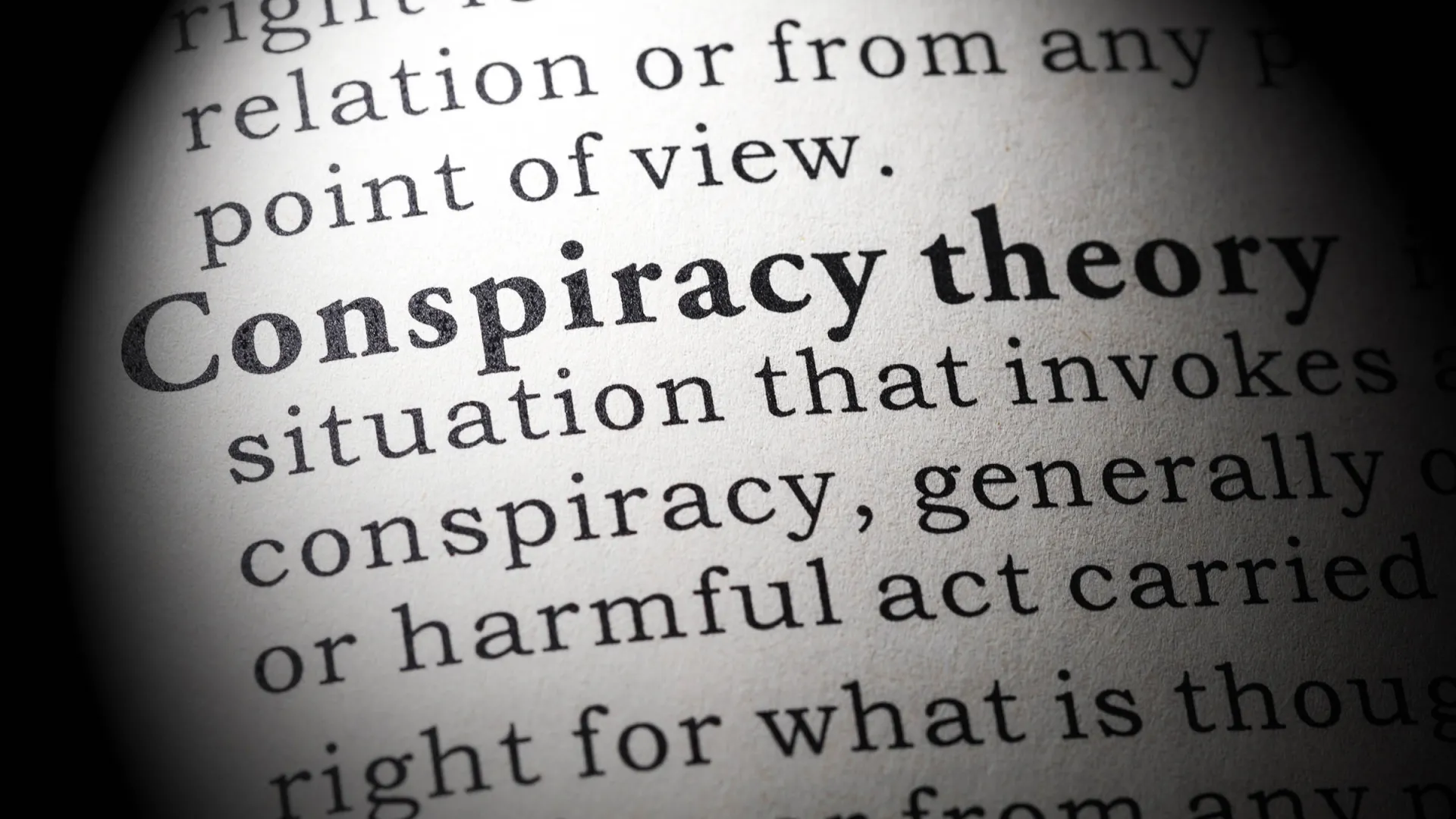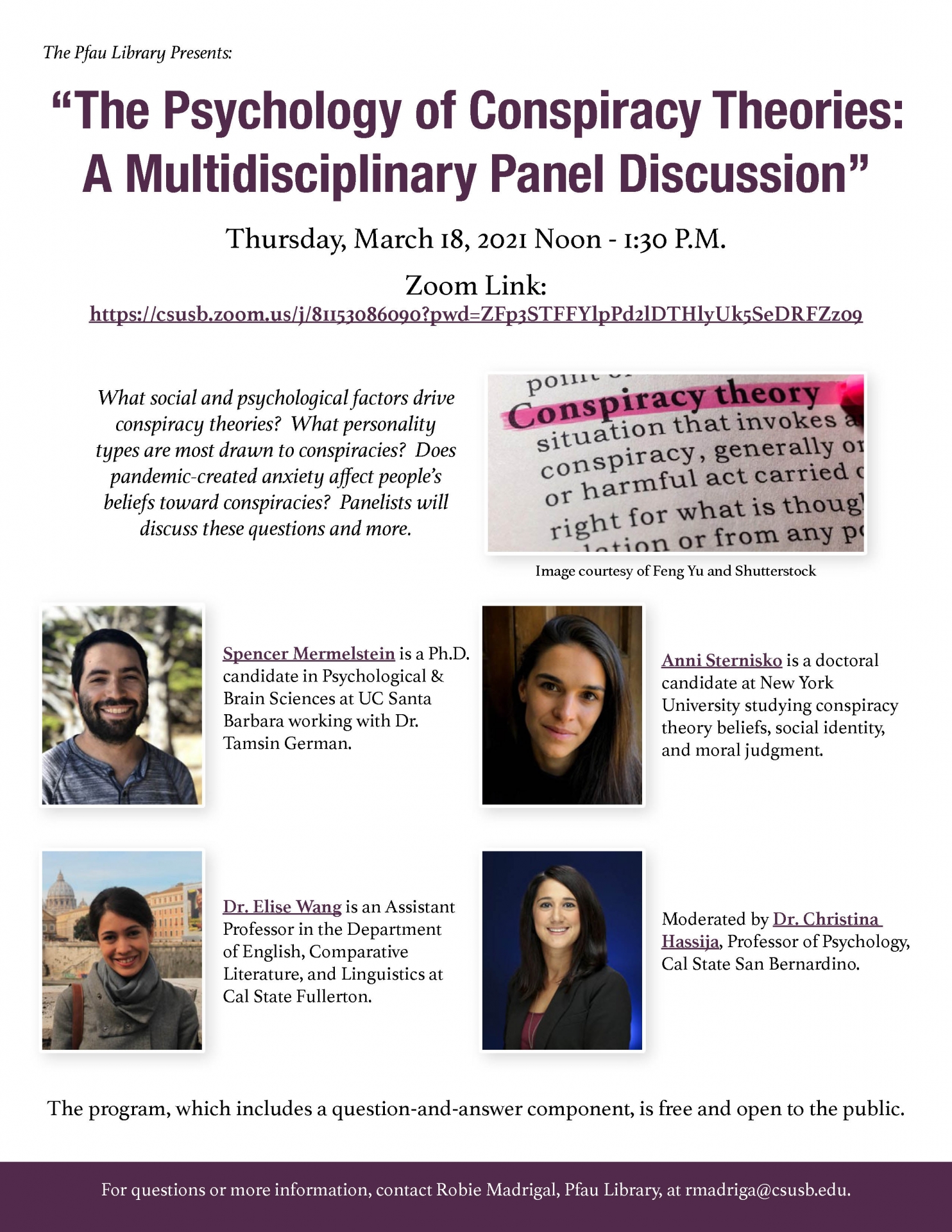Joe Gutierrez | CSUSB Office of Strategic Communication | (951) 236-4522 | joeg@csusb.edu

Despite overwhelming evidence to the contrary, some people continue to insist that the moon landings by American astronauts were fake, that former President Barack Obama is not a U.S. citizen, or that the COVID-19 pandemic is a hoax.
What drives people to think that way despite overwhelming facts that disprove such ideas will be the focus of a program by Cal State San Bernardino’s John M. Pfau Library, “The Psychology of Conspiracy Theories: A Multidisciplinary Panel Discussion.”
The program will feature a panel of experts and will take place on Zoom at noon Thursday, March 18. Free and open to the public, it can be accessed from a PC, Mac, Linux, iOS or Android at https://csusb.zoom.us/j/81153086090?pwd=ZFp3STFFYlpPd2lDTHlyUk5SeDRFZz09.
The panelists will discuss various aspects of conspiracy theories, including: What social and psychological factors drive conspiracy theories? What personality types are most drawn to conspiracies? Does pandemic-created anxiety affect people’s beliefs toward conspiracies?
The panelists are:
- Spencer Mermelstein, a Ph.D. candidate in psychological and brain sciences at UC Santa Barbara working with UCSB psychology professor Tamsin German;
- Anni Sternisko, a doctoral candidate at New York University studying conspiracy theory beliefs, social identity, and moral judgment; and
- Elise Wang, an assistant professor in the Department of English, Comparative Literature, and Linguistics at Cal State Fullerton.
The panel will be moderated by Christina Hassija, interim department chair and associate professor of psychology at CSUSB.
There also will be a question-and-answer component.
